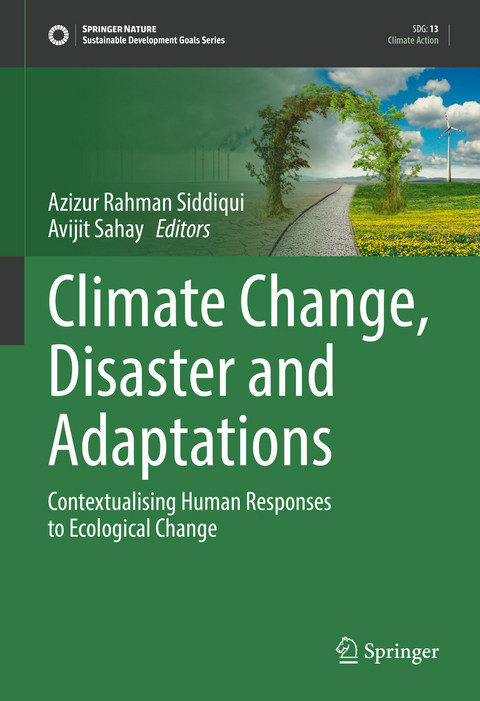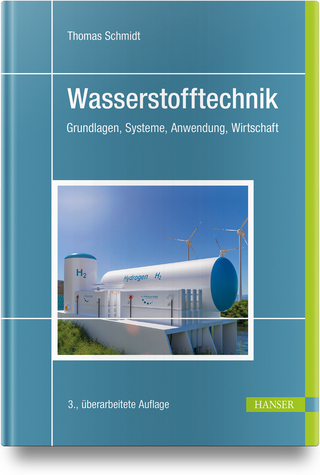
Climate Change, Disaster and Adaptations
Springer International Publishing (Verlag)
978-3-030-91009-9 (ISBN)
lt;p>Professor A.R. Siddiqui is Professor and Head, Department of Geography, University of Allahabad. Having finished his B.Sc, M.Sc, M.Phil &Ph.D degree from Aligarh Muslim University, Aligarh, Professor Siddiqui first joined Chaudhary Charan Singh University, Meerut in the year 1999 as lecturer and later University of Allahabad University in 2001. Prof Siddiqui has completed NNRMS training course and three international training programmes sponsored by United Nations. He has also obtained P.G. Diploma in Geo-Information Science with specialization in Geo-Hazards from IIRS, Dehradun and ITC, Netherlands. His specialization is in arid zone research, urban environment issues and application of remote sensing and GIS in land degradation studies. From 2016, he has served as the Secretary of Indian Institute of Geomorphologists (IGI). Prof Siddiqui has visited France, Russia, China, Belgium, The Netherlands, Switzerland, Italy, Austria, Greece, and Nepal for academic purposes and is a recipient of excellence award in the year 2018 by university of Allahabad.
Dr. Avijit Sahay is currently a Post-Doctoral Scholar in the Department of Humanities and Social Sciences, Indian Institute of Technology Bombay. He did his PhD on Riverbank Erosion in Majuli Island of Assam from Department of Geography, University of Allahabad, Allahabad. His works on Majuli Island have been presented in International Conferences and have been published in national and international journals. He is also the Associate Editor of the Oriental Anthropologist-an international journal of the science of man and now published by SAGE Publications.Chapter 1. Resilience, Adaptation and Migration: Exploring the Range of Human Response to Climatic Change.- Chapter 2. Spatio-temporal variation of drought events over eastern Rajasthan (India): A geo-spatial approach.- Chapter 3. Evaluation of Hydro-geomorphic Response to Climate Change in North Sikkim District, Sikkim, India.- Chapter 4. Disasters, Climate Change and Migration Issues in Fiji and the Pacific: An Overview.- Chapter 5. Assessing the Microclimatic Environmental Indicators of Climate Change of a Temperate Valley in the Western Himalayan region.- Chapter 6. Is technology the nexus between climate change and disaster induced human displacement?.- Chapter 7. Climate Change Hazard Perception and Gender Empowerment for Resilience in the regions of Tropical Asia.- Chapter 8. Climate Change and the Rising Hazard Potential in Lahaul & Spiti: Himachal Pradesh.- Chapter 9. Climate Change and Disaster-induced Displacement in Global South: A Review.- Chapter 10. Climate Change, Disaster and Adaptations - Human Responses to ecological changes.- Chapter 11. Assessing Impact of Climate variability on potential agricultural land suitability in Nalanda District, Bihar.- Chapter 12. Adaptation of the Agri-based Society to Environmental Changes in Thar Desert.- Chapter 13. Human response towards COVID-19 pandemic in terms of adaptation, displacement and climate change in India.- Chapter 14. Human adaptation during Covid-19 Pandemic: the role of perceived stress and resilience.- Chapter 15. Evolutionary forces and Human migration: How sapiens conquered the world.- Chapter 16. Adjustment of the Coastal Communities in response to Climate variability and sea level rise in the Sundarban, West Bengal, India.- Chapter 17. ANALYSING THE VEHICLE INDUCED AIR POLLUTION AND ITS IMPACT IN THE AZADPUR MANDI, DELHI.- Chapter 18. Human Mobility Response to Natural Disasters and Environmental Change.- Chapter 19. Temperature and Rainfall Extremes over Southern India (1969-2014):Frequency Distribution and Trends.
| Erscheinungsdatum | 01.03.2022 |
|---|---|
| Reihe/Serie | Sustainable Development Goals Series |
| Zusatzinfo | XI, 269 p. 133 illus., 114 illus. in color. |
| Verlagsort | Cham |
| Sprache | englisch |
| Maße | 178 x 254 mm |
| Gewicht | 739 g |
| Themenwelt | Naturwissenschaften ► Biologie ► Ökologie / Naturschutz |
| Naturwissenschaften ► Geowissenschaften ► Geologie | |
| Schlagworte | climate adaptation • Climate change action • ecological change • Extreme events • Natural Hazards • resettlement • sustainable development |
| ISBN-10 | 3-030-91009-1 / 3030910091 |
| ISBN-13 | 978-3-030-91009-9 / 9783030910099 |
| Zustand | Neuware |
| Informationen gemäß Produktsicherheitsverordnung (GPSR) | |
| Haben Sie eine Frage zum Produkt? |
aus dem Bereich


